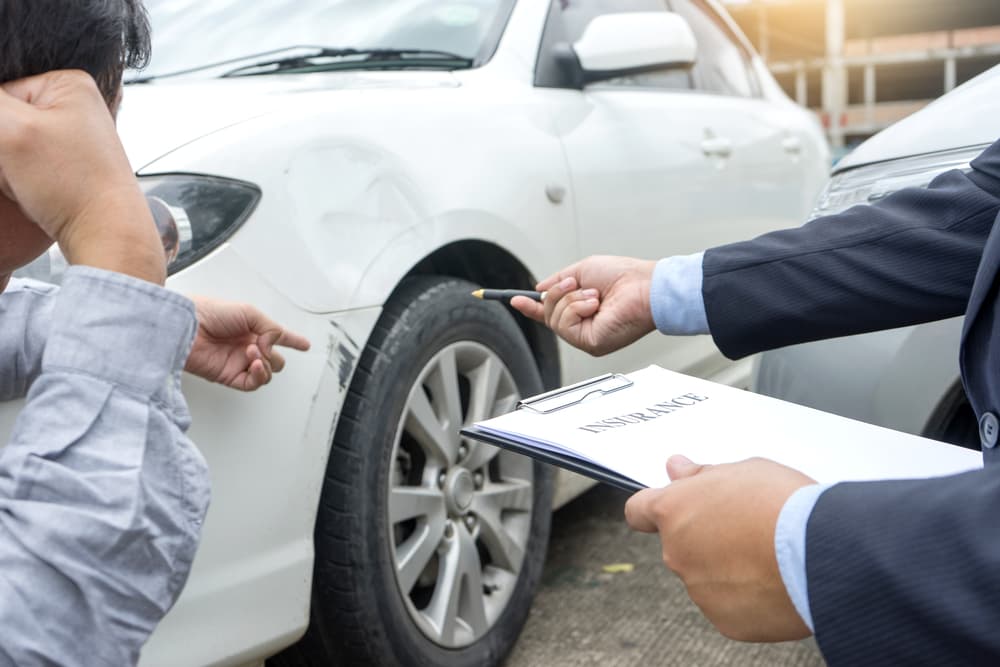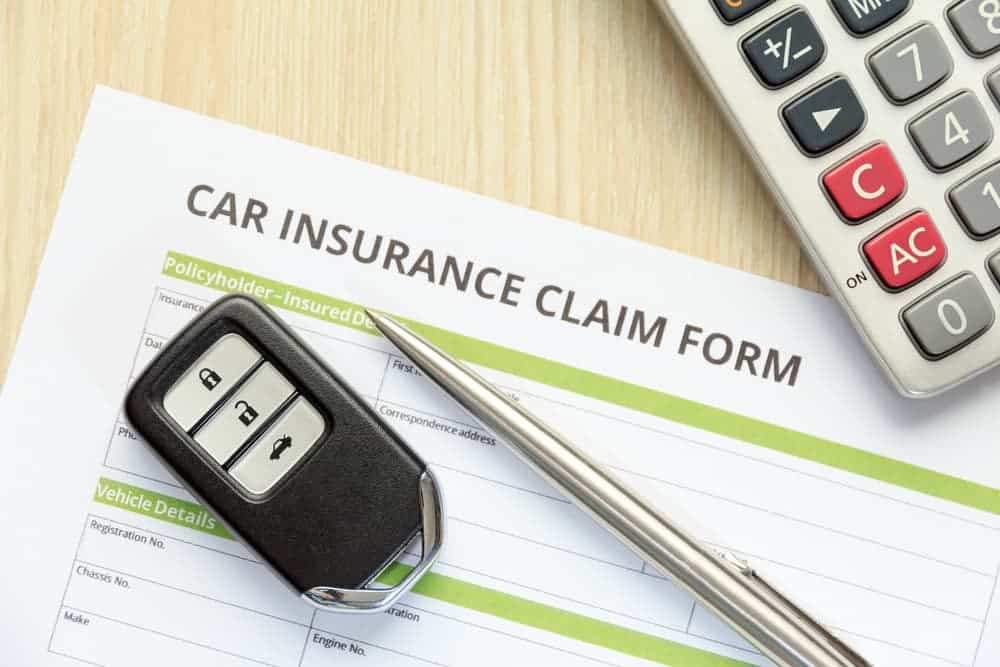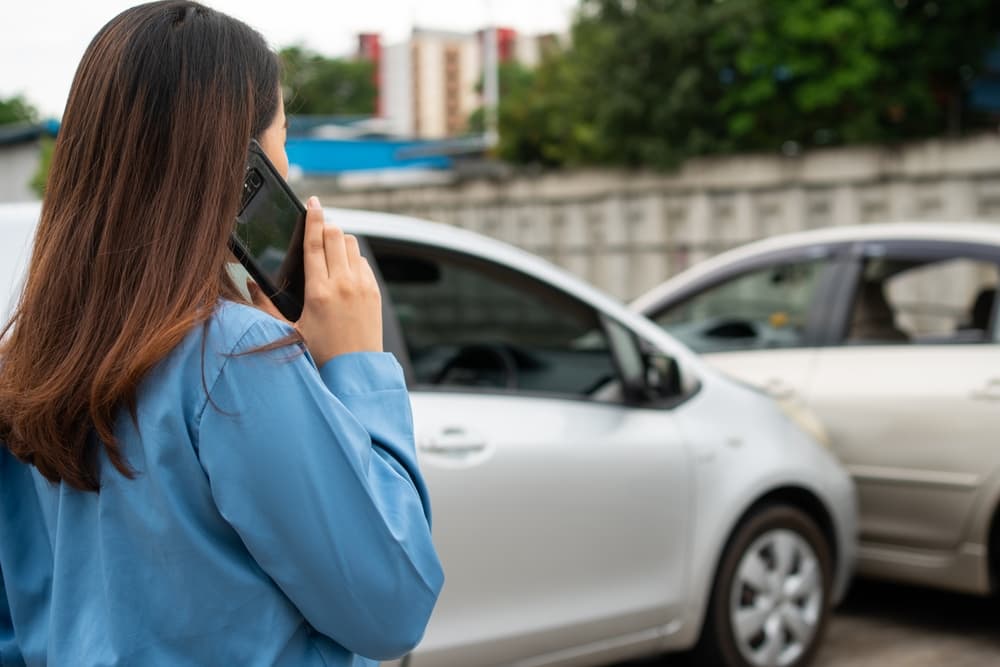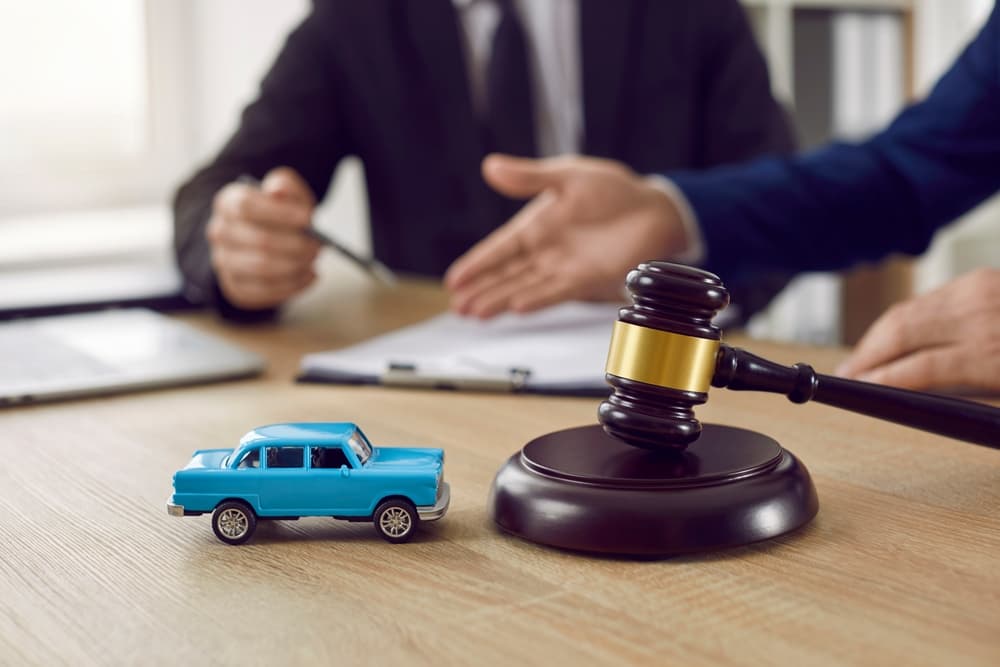Being involved in a car accident can be a traumatic experience, especially if you're a passenger. Unlike drivers, passengers often have a more passive role in the accident but are still entitled to seek compensation for their injuries and damages.
If you've suffered an injury as a passenger in a car accident, understanding how to file a claim for compensation is crucial. A car accident attorney can take on your case and seek the financial recovery you need for your injuries and losses.
Understanding Your Rights as a Passenger
As a passenger in an accident, you can seek compensation for your injuries and other damages. Unlike drivers, you're not responsible for causing the collision, but you still need to follow a specific process to file a claim. Your claim will typically be directed toward the insurance policies of the drivers involved in the accident.
Whose Insurance Do You Use to File a Claim as a Passenger?
As a passenger injured in a car accident, you can file a claim through the insurance to seek compensation. However, you must determine whose insurance you file a claim under.
Your Driver's Insurance

If your accident happened in a no-fault state, you can file a claim under the insurance company of the driver of the vehicle you were in. Drivers in no-fault states are required to carry personal injury protection (PIP) insurance coverage, which extends to you as a passenger, no matter who is at fault for the collision.
Should your financial needs exceed the policy limits of your driver's insurance policy, you may have the opportunity to file a claim through both drivers' insurance companies.
In an at-fault state, if the driver of the car you were in caused the accident, you can file a claim through their liability insurance.
It can be awkward to file a claim with your driver's insurance company, regardless of whether or not they were at fault. However, it's important to remember you're not filing a claim against them as an individual, but rather their insurance company.
The Other Driver's Insurance
In at-fault states, you would file a claim against the responsible driver's insurance policy. Therefore, if the other driver caused the collision, you can file a third-party claim through their insurance.
Additionally, as mentioned, depending on the circumstances, you may have the chance to file a claim against the other driver's insurer, even in a no-fault state.
Your Insurance
If you have personal injury protection insurance, you can file a claim with your own insurer. Even if your car wasn't involved in the collision, PIP insurance protects you if you're in an accident in another person's vehicle.
What if the At-Fault Driver is Uninsured?
Every auto insurance company offers uninsured motorist protection (UM). Some states require their drivers to carry this type of insurance, while others make it optional.
If your driver carries UM coverage on their insurance, it typically extends to their passengers. Therefore, you could file a claim under your driver's insurance if the other driver is uninsured.
Depending on the circumstances, you can also file a personal injury lawsuit against the at-fault party if they're uninsured. This varies from an insurance claim, as you're suing the driver, and they're responsible for paying any settlement or award out of their own pockets.
What Happens if I Was a Passenger in a Rideshare Vehicle?
Like other drivers, rideshare drivers are required to carry their own PIP or liability insurance. Therefore, if you're involved in an accident while in a rideshare vehicle, you could, depending on the circumstances, have a claim against either your driver's insurance or the at-fault driver's insurance.
Also, rideshare companies, like Uber and Lyft, provide their drivers with additional insurance protection if their insurance is insufficient, or passengers' damages exceed policy limits. Rideshare company liability protection depends on the status of the driver at the time of the accident. If the driver had a passenger in their vehicle at the time of the collision, this insurance protection would kick in.
Compensation Available for Passengers in a Car Accident
Passengers' damages depend on the circumstances of the collision. However, passengers can pursue compensation for their economic and non-economic damages.
Some of the damages you may be entitled to receive as a passenger include the following.
Medical Expenses
Many car accidents result in injuries. In a recent year, there were over 2 million individuals injured in accidents on U.S. roads. Car accident injuries can be particularly severe, including neck injuries, head injuries, and broken bones. These injuries can require extensive and costly medical care.

Damages for medical-related costs can include compensation for:
- Emergency room visits
- Hospitalizations
- Prescription medications
- Follow-up appointments
- Surgeries
Additionally, you can pursue compensation for long-term care if your injuries require ongoing treatment.
Lost Wages
Depending on the severity of your injuries, you may be unable to work for some time. You can be entitled to recover lost income as part of your claim for earnings lost during your time away from work. This can include compensation for regular pay, overtime, bonuses, and personal or sick days.
Property Damage
You may be entitled to compensation for any property damaged in the accident. Although your vehicle was not involved in the crash, other personal property, including cell phones, laptops, and other belongings, could have been damaged. These damages may cover the cost of repairing or replacing the item.
Pain and Suffering
Car accidents can affect your physical health, mental health, and overall quality of life. Your attorney can determine whether you would qualify for pain and suffering damages based on evidence such as medical records.
Pain and suffering damages for a passenger claim can include compensation for:
- Physical pain and suffering caused by your injuries
- Mental anguish
- Emotional distress resulting from the accident
- Loss of enjoyment of life
- Permanent scarring and disfigurement
Unlike other types of damages, like medical expenses and lost income, pain and suffering damages are non-economic damages. Because these damages are subjective, they are a bit more challenging to quantify. Still, a car accident lawyer can acquire the necessary evidence to prove these damages.
Filing a Car Accident Claim as a Passenger
Filing a claim as a passenger in an auto collision can seem confusing and stressful. Still, even as a passenger, you can and should exercise your right to seek the financial recovery you deserve.
The following steps can provide some guidance concerning filing your claim. For personalized assistance, do not hesitate to seek legal representation from a local car accident attorney.
Seek Medical Treatment
After an accident, your health and safety should be your top priorities. Even if you don't immediately feel injured, it's important to get checked by a medical professional. Some injuries may not show symptoms right away. It's also important to remember your medical reports can serve as vital evidence for your claim.
Get a medical evaluation as soon as you can. Visit an emergency room or urgent care if needed. If necessary, follow up with your primary care physician for a complete physical assessment and diagnostic testing.
Be sure to keep all your records. Document all medical visits, treatments, and expenses. This will be vital for proving the extent of your injuries and the related costs.
Document Your Accident
Gather as much information about the accident as possible. This will help substantiate your claim and ensure you have all the necessary evidence.
Take photographs of everything. If you were able to get pictures at the accident scene, keep those as evidence. Additionally, take photos of your injuries and anything else that can be relevant to your claim.
When police are called to the scene of an accident, they collect valuable information to put in a comprehensive police report. If possible, request a copy of the police report. This document will include details about the accident and can significantly support your claim.
Also, get witness contact information if possible. Witnesses can provide additional evidence to support your claim.
Determine Liability
If you're in an at-fault state, you must determine which party was at fault. Determining liability will affect which insurance company is responsible for covering your claim.
Figuring out who was responsible for an accident is simple in some cases, while in others, it's much more challenging. If you're struggling, a lawyer is best equipped to determine fault.
Identify Insurance Information

To file a claim, you need to know which insurance companies are involved. Your claim may involve your driver's insurance company, the other driver's insurer, or both.
Gather insurance details as soon as you can. Obtain the insurance information of both the driver of the car you were in and any other vehicles involved in the accident. This information includes the insurance company name and policy number. Usually, drivers carry insurance cards that feature all of this information.
Notify the insurance companies as soon as possible. Determine which insurance company you need to file a claim with and inform them of your intention to do so. Provide them with the necessary details about the accident and your injuries.
File a Claim with the Appropriate Insurance Company
Once you have all the necessary information, you can formally file a claim with the correct insurance company.
If the insurance company requires any claim forms, be sure to provide them as soon as possible. You should also submit documentation, including medical records and accident reports, to strengthen your claim.
The insurance company will assign an insurance adjuster who will investigate your claim and decide whether to approve or deny your claim. If your claim is approved, they'll provide a settlement offer to close out your claim.
Negotiate with the Insurance Company
Once you receive your settlement offer, be sure to review it carefully. Consider whether it adequately covers your medical bills, lost income, and other damages.
If the offer is too low, you can negotiate with the insurance company. You may need to provide additional evidence or argue for a higher settlement based on your damages.
Take Legal Action, If Necessary
If negotiations with the insurance company do not lead to a satisfactory settlement, you may need to consider legal action. A car accident attorney can demand the insurance company settle for a requested amount through a demand letter, but if that doesn't yield favorable results, they won't shy away from filing a lawsuit.
Your attorney can handle all aspects of your lawsuit, including filing the claim in court, going through discovery, and renegotiating for a fair settlement. If necessary, your skilled car accident lawyer can take your case to trial.
When Should a Passenger Consult with a Car Accident Attorney?
When you're injured in an auto collision as a passenger, the sooner you consult with a lawyer, the better. These claims can be challenging to navigate, but a skilled attorney can handle your claim on your behalf.

A car accident lawyer can file an insurance claim for compensation. They can determine liability to ensure you file a claim with the appropriate party's insurer. Your attorney can communicate with the insurance company and provide all necessary documentation to seek a fair settlement.
Should the insurance company fail to settle your claim justly, your car accident attorney won't hesitate to take legal action and file a lawsuit. Going through a lawsuit can be intimidating, but when you have an experienced car accident lawyer on your side, you don't have to worry.
If you suffer harm in a car accident as a passenger, don't wait to seek legal assistance. Your attorney can protect your rights and represent your best interests to get you the case result you deserve.
If You Were Injured as a Passenger in a Car Accident, Consult with an Experienced Attorney
Filing a car accident claim as a passenger involves a series of steps to ensure you receive the compensation you need. From seeking medical attention to documenting the accident and filing your insurance claim, each step is key.
When you're injured as a passenger in an auto collision, seek legal representation. An experienced personal injury attorney can provide invaluable support and navigate the complexities of your claim. Your well-being and compensation are the ultimate goals; taking the right steps can help you achieve both.
